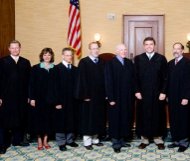8/3/2010
Oregon Appeals Court Overturns Car Impound On Driver PropertyCars cannot be seized from the driveway of the owner without a warrant, according to Oregon Court of Appeals.

Unlike a Texas appellate court, the Oregon Court of Appeals ruled last Wednesday that reaching one's own driveway during a traffic stop can avoid more serious consequences. In November 2007, Officer Blood of the Cornelius Police Department attempted to stop Richard Chaves Gonzales for a traffic violation. Gonzales was just two or three blocks from home, so he did not stop until he reached his own driveway. Blood wrote Gonzales a ticket for driving on a suspended license and began searching the car without a warrant after declaring that he was going to impound the vehicle. Blood insisted that the search was valid.
"I get a slow response from people who may be suspended or not have insurance, because they want to get to what I call home base," Blood explained at trial. "They think their car won't get impounded if they get caught."
State prosecutors argued that the community caretaking doctrine required that police grab the car from the driveway because the vehicle would otherwise have been "at the disposal" of people who had no license, even though the mother-in-law of Gonzales, the car's owner, had a license. The public defender argued on behalf of Gonzales that the state had no business towing a car that was not blocking traffic and would not be considered abandoned if left alone. A trial judge decided that he was not going to allow Gonzales to benefit from not pulling over immediately.
The state court of appeals examined this decision in light of a decision from the federal appeals court that has jurisdiction over Oregon. The Ninth Circuit ruled in 2005 that police could not tow a Ford Aerostar minivan out of the owner's driveway by asserting the community caretaking function (view Miranda v. City of Cornelius decision).
"Defendant in this case relies heavily on Miranda, essentially urging us to adopt the Ninth Circuit's reasoning," Judge Ellen F. Rosenblum wrote for the three-judge panel. "We agree with the Ninth Circuit's reasoning in Miranda and need not restate it at length here. The community caretaking doctrine does not encompass all police activity that furthers the interests of public safety, as the state appears to assert... To the extent that deterring unlicensed drivers from using the roads can be viewed as a public safety matter independent of law enforcement, we reject the state's suggestion that leaving the car accessible to defendant would have created a threat to public safety. That contention amounts to little more than speculation that defendant would have driven the car again and would not have been deterred by the citation for driving while suspended, which carried a fine of up to $720."
Because the court ruled the seizure was illegal, the evidence of cocaine possession obtained after conducting a search of the car was thrown out.
A copy of the decision is available at the source link below.


